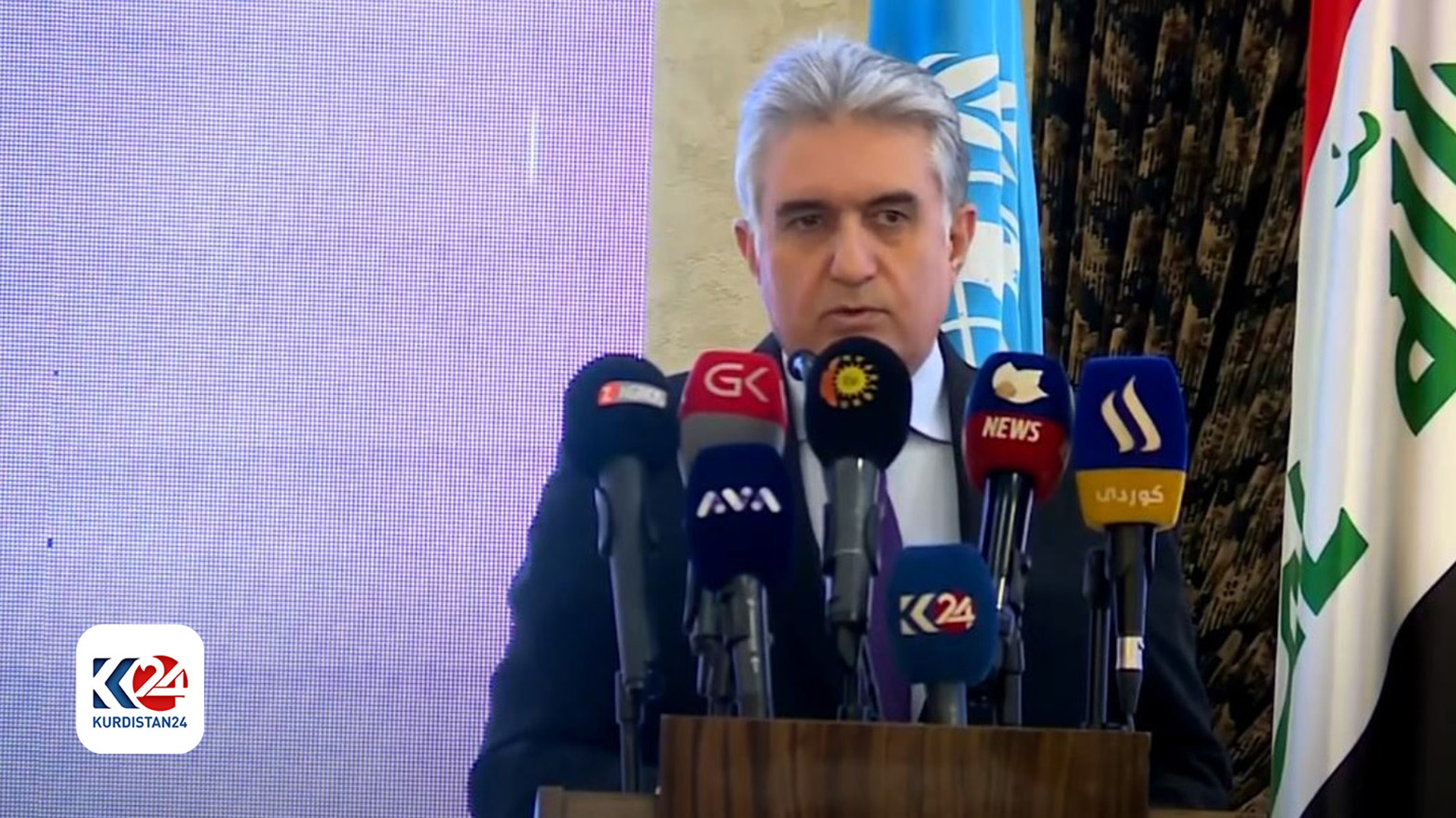The fight against gender-based violence continues: KRG Interior Minister

ERBIL (Kurdistan 24) – At the closing event for 16 Days of Activism against Gender-Based Violence (GBV) in Erbil on Sunday, the Kurdistan Regional Government (KRG) Minister of Interior Reber Ahmed underlined the shared responsibility to take concrete steps in enhancing freedoms for women.
As we conclude the #16daysofactivism on violence against women, our fight doesn’t end here; it’s rather a lifelong journey that requires a collective effort and an unwavering dedication from all parties.
— Rêber Ahmed (@RayberAhmed) December 10, 2023
The #KRG is committed to advocate for policies that support victims and… pic.twitter.com/eHKFNhzm3f
Read More: Women's freedoms increasing in Kurdistan Region, says KRG Interior Minister
Under the guidance of Kurdistan Region Prime Minister Masrour Barzani, the High Council for Women and Development (HCWD) and the United Nations in Iraq, a closing event was held for the global women’s rights campaign.
During the event, Dr. Khanzad Ahmad, the Secretary General for the High Council for Women and Development, underlined that the Ninth Cabinet under the leadership of Prime Minister Masrour Barzani has made it a priority to combat GBV.
She also extended her thanks to police officers from the Directorate of Combating Violence, as well as other government offices and NGOs assisting in combating femicide.
Since 2008, the United Nations Secretary-General's UNITE to End Violence against Women campaign, themed "Orange the World," has annually advocated for global action against violence against women.
"Even though the 16-day campaign against violence against women is over, our struggle against (gender-based) violence continues and will not end,” Minister Reber Ahmed said.
The minister also underlined that awareness can break the cycle of violence, and it starts from universities and schools to educate youth on accepting each other to end outdated ‘traditions that are victimizing women.’
Moreover, he said religious leaders can also play an important role in establishing moderate ideas and thoughts to combat violence and teach how to accept diverse opinions to believe in equality and justice.
He also added that the KRG has always “been a strong defender of victims of violence, and also imposed harsh punishment on the perpetrators.”
Lastly, he said it is important to implement plans on GBV rather than depending on just promises. “We have to continue to work on those words to move towards a world where women and all individuals are safe from violence."
Read More: KRG appoints new Director General of Combating Violence against Women
Moreover, Fenk Shafeeq, the head of the General Directorate of Combating Violence, said the number of cyber crimes have grown, with groups exploiting social media applications like Telegram, Snapchat and others to blackmail women.
However, she said they have “strong coordination within the Asayish and the operations room dedicated to combating cyber crimes.”
Moreover, Aya Sarchil, the head of the High Council for Women and Development, underlined the budget cuts by Baghdad since 2014 on the KRG has reduced income and hampers women's access to resources and empowerment opportunities.
Sarchil also said budget discrepancies exacerbate economic hardships within households, leading to increased stress and serving as a precursor to domestic violence.
“Economic challenges contributed to a 116% increase in divorce cases from 2014 to 2022, posing risks such as early marriage and human trafficking, especially for women,” Sarchil concluded.
